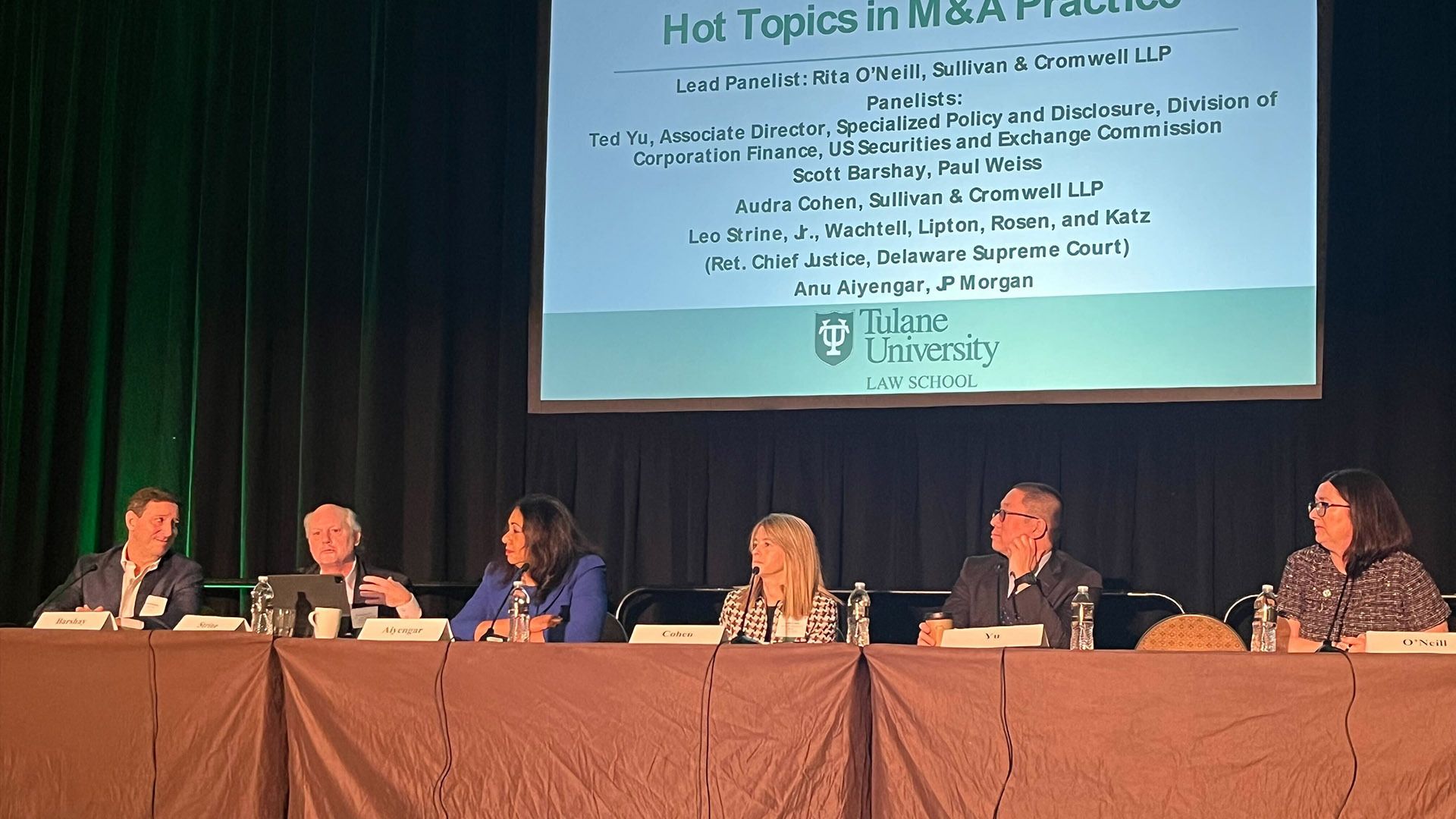Tulane M&A panel talks conflicts, challenges across deal landscape


Morning panel at the Tulane Corporate Law M&A conference. Photo: Michael Flaherty/Axios
Market headwinds, staple financing and antitrust angst were hot topics that kicked off Tulane Law's annual M&A conference Thursday.
Driving the news: Panelists discussed the return of an M&A financing tool that is raising the age-old concern of conflicts of interest.
Why it matters: The use of so-called "staple financing" allows the sell-side banker to also arrange a financing package for the buyer. That kind of arrangement can get ugly if issues emerge and the bank is caught in the middle.
- "It's back," said Leo Strine of Wachtell, Lipton, Rosen & Katz.
Flashback: "We are totally conflicted — Get used to it."
- That was the famous quote from Morgan Stanley banker Rob Kindler at the Tulane event in 2007, during the go-go days of private equity deals when staple financing was common.
Of note: "If you're going to provide financing, it should be upfront. It should be understood," Strine said yesterday.
- "It should not be, "Oh, by the way," Strine added, referring to banks advising a company on a sale and, at the last minute, taking a cut in the buyer's deal financing.
Zoom out: The M&A market has hit a "bit of a brick wall," JPMorgan's global head of M&A Anu Aiyengar said in her keynote presentation. While deals have closed this year, the total count is down and the outlook continues to be lower for the coming quarters.
- "Companies that even want to sell are not proactively putting themselves up for sale," Aiyengar said during the panel. "Because there's a perception that if you launch a sale process today, proactively, maybe there's something wrong with you."
- One major impact on the deal landscape is the current regulatory regime, said Paul, Weiss partner Scott Barshay.
- "The strike zone has not expanded by inches. It's expanded by feet," Barshay said, referring to the tact taken by antitrust regulators.